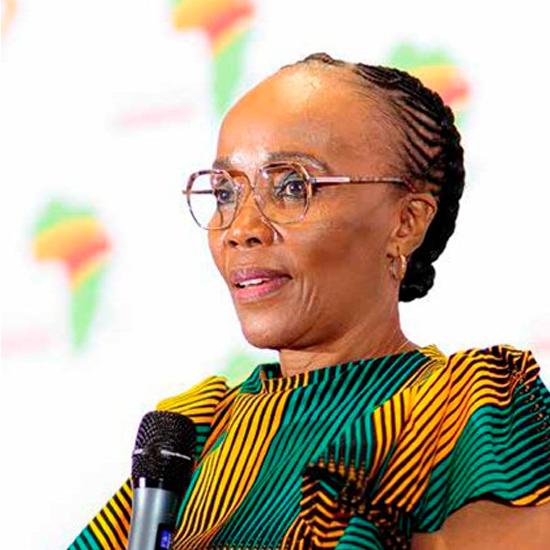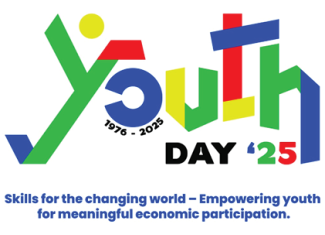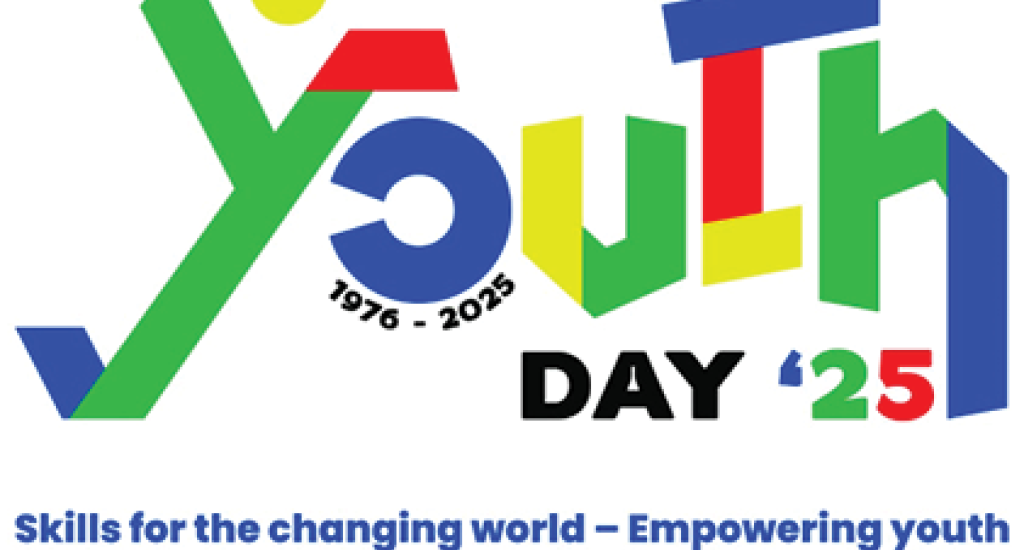Empowering youth
for a changing world

As we mark Youth Month 2025, under the theme: “Skills for a Changing World – Empowering Youth for Meaningful Economic Participation,” we are reminded that this is no ordinary month. And Youth Day is not a mere public holiday – it is a time for remembrance, reflection and renewed responsibility.
This is a month for us not only to commemorate, but to draw courage from generations of Oliver Tambo’s young lions whose selfless sacrifice brought about this freedom — the freedom for which many paid with their own lives.
We honour the bravery of Hector Pieterson, Tsietsi Mashinini, and Hastings Ndlovu. But let us also remember John Davids from Manenberg, who was shot in the head from behind at just 16 years old. Dennis Dlanza, Abel Gcwabe and Enoch Follie – these young people were part of a national uprising. Their names must not be forgotten. Their deaths should not be erased from history.
To paraphrase former Nelson President Mandela: when injustice had the upper hand, it was the youth who jolted our nation from its slumber and set South Africa on a path toward freedom. Today’s youth are called to complete that journey.
A theme for the times
“Skills for a Changing World” is not a rhetorical flourish. It is a national imperative. Our young people are entering an era of profound technological transformation – and we must prepare them not just to survive it, but to shape it.
President Ramaphosa’s Fourth Industrial Revolution Report reminds us that: “Success in the era of the 4IR depends on our ability to unleash the full scientific, industrial, and creative potential of South African society. To thrive, we must transform how we learn, work, and live – and revolutionise the way we think”.
This is about more than coding and robotics. It is about mindset. We must equip our youth with adaptability, imagination and the ability to lead in uncertain times.
Progress since 1994
South Africa has made significant strides in youth development. In 1994, the matric pass rate was 58%. Today, it has surpassed 87%. In 1991, the National Student Financial Aid Scheme (NSFAS) supported 7 240 students with R33 million. Today, over 1.1 million students are funded with a budget of more than R52 billion.
Black student representation in higher education has grown from 50% in 1994 to over 80% by 2020. Over 60% of graduates are now women. These gains are the result of hard-won policies and sustained investment – including the transformation of the NSFAS into a grant-based scheme to reduce student debt.
We are proud of young trailblazers like Mongiwa Ntuli, who completed a degree in Actuarial Science at just 17. She is proof of what our young people can do when given even half a chance.
Despite these gains, the youth unemployment crisis persists. In the first quarter of 2025, unemployment stood at 62.4% among youth aged 15 to 24, and at 40.4% among those aged 25 to 34. An estimated 3.8 million young South Africans are neither in education, employment nor training.
This is not sustainable. It is not acceptable. It demands urgent, innovative and measurable solutions.
Turning plans into opportunities
Government knows that young people do not want promises – they want real opportunities. That is why we have launched a number of bold, practical programmes to help young people find work, start businesses and gain skills that are useful in the real world.
The initiatives include:
- National Youth Service
Through the new South African National Service Institute, we are helping young people who are not working or studying to build skills in areas like agriculture, health, cybersecurity, coding and robotics. These are skills that can open doors in fast-growing industries – from farming to technology to public services. - Presidential Youth Employment Intervention
Since 2020, this programme has helped over 1.6 million young people get short-term jobs and work experience, especially in schools, government offices and community projects. Young people can register for free on SAYouth.mobi and connect with opportunities near them. - Goat and Sheep Farming Programme
We are working with training colleges to give 5 000 graduates a chance to become successful small-scale farmers. These young people will get training, land, infrastructure, and livestock – plus help to access markets and sell their products. - Cybersecurity and Drone Training
South Africa needs more skilled people to protect our digital systems and explore new industries like drones. That is why we are training young people to become cybersecurity experts and drone operators – with the chance to start businesses or find jobs in areas like farming, logistics and disaster management. - Young Women in Mining and Energy
As South Africa explores renewable energy and mines for key minerals, we are making sure young women can take part in this economic shift – not just as workers, but as future industry leaders. This includes training in technology, manufacturing and managing energy projects.
Each of these programmes is built to lead somewhere – to a real job, a small business, or a long-term career. Because for us, empowerment is not just about getting a certificate. It is about helping young people earn a living, support their families, and contribute to our country’s growth.
Partnering for impact
No government can transform youth outcomes alone. We call on the private sector, civil society, academia, labour and multilateral partners to co-invest in the ideas and capabilities of our young people. We call on every employer to open doors. Every policymaker to listen. Every institution to act.
A Future of dignity, not despair
As we look forward, we must challenge the myth that young people are apathetic. Across the country, we see youth driving community action, pioneering start-ups, excelling in Science, Technology, Engineering and Mathematics; leading in politics and speaking truth to power. What they need is not motivation but momentum. Not handouts but a hand up.
Let us recommit – not in words, but in budgets, legislation and institutional reform. Let Youth Month 2025 be remembered not for speeches but for action.
As we honour those who fell in 1976, may we be worthy of their sacrifice by building a society where no young person is left behind – where youth are not only seen but supported; not only heard but hired; not only hopeful but empowered.




